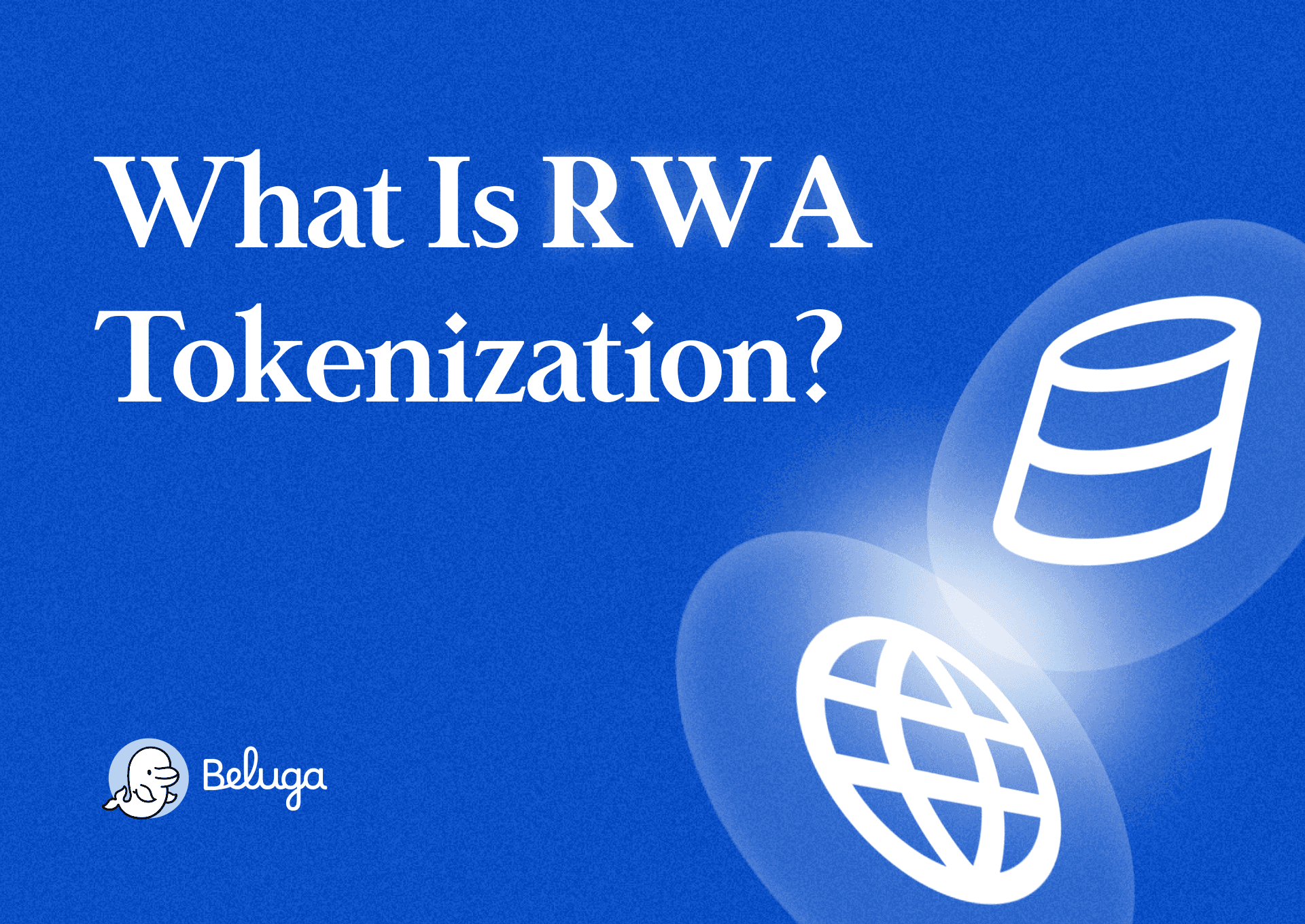What Is Real World Asset (RWA) Tokenization?
By Will Tolmie Updated July 25, 2025

Summary
- RWA tokenization digitizes physical and financial assets on blockchains, enhancing liquidity and accessibility for investors.
- Benefits to RWA tokenization include fractional ownership, reduced transaction costs and portfolio diversification, while challenges involve complications with legal integration and valuation.
- Major financial institutions such as BlackRock and Franklin Templeton as well as RWA tokenization leaders such as Ondo Finance and Sky are leading the adoption of tokenized assets, demonstrating significant potential for the space.
Introduction
Real World Asset (RWA) tokenization is revolutionizing the world of investing by bringing tangible and intangible assets onto blockchains. A wide variety of assets can be tokenized, including real estate (such as residential and commercial properties), commodities (such as oil, agricultural products and precious metals), intellectual property (such as royalties from music and trademarks) and financial instruments (such as stocks and bonds). The growth potential of RWA tokenization is substantial, as the innovative approach to investing enhances liquidity opportunities and lowers barriers to entry.
How Do You Tokenize Real World Assets?
RWA tokenization digitizes physical and traditional financial assets, representing them as blockchain-based tokens. RWAs are tokenized to either confer rights to the asset or track the price or performance of the asset. RWA tokenization generates either fungible tokens that are readily exchanged or non-fungible tokens that each correspond to a unique asset.
From conception to execution, the tokenization process typically involves identifying the RWA, choosing a blockchain, developing token features, appraising the RWA, issuing tokens and potentially listing these tokens on a digital exchange. The nature of the RWA and the desired use case typically determine the type of token that is minted.
Because the applications of RWA tokenization are so vast, the range of tokens is as well. For example, the St. Regis Aspen Resort, a full-service luxury hotel in Colorado, is tokenized for fractional ownership through Aspen Coin, allowing investors to hold shares in the property. Meanwhile, LinksDAO issues its $LINKS token to fund the purchasing and operating of physical golf courses, bridging digital investment and membership with real-world access. On the other hand, Paxos issues Pax Gold tokens, each of which is backed by one fine troy ounce of gold.
Benefits and Drawbacks of RWA Tokenization
The benefits of RWA tokenization stem from the usual advantages ascribed to blockchain's decentralized, accessible and liquid nature. The transparency of investing is improved by the immutable ledgers of blockchains, and tokenization frequently reduces transaction costs by removing intermediaries. Additionally, as observed above with Aspen Coin, fractional ownership allows investors to buy smaller portions of high-value assets, reducing barriers to entry for investing and therefore increasing global investment opportunities.
Tokenized RWAs also often have enhanced liquidity, especially in relation to the RWAs themselves, creating opportunities for easier buying, selling and trading compared to traditional markets. The ability to trade tokenized assets on digital marketplaces also accelerates transaction speeds, enabling real-time transfers of tokens just as one would observe in stock exchanges. The tokenization of RWAs also provides investor exposure to alternative investments that may not correlate with traditional market fluctuations, opening new doors for portfolio diversification.
In spite of these advantages, RWA tokenization also faces significant challenges. Integrating tokenized RWAs into traditional financial and legal systems is often troublesome, restricting widespread adoption. Tokenized RWAs traded on secondary markets can also experience price volatility, which impacts investor confidence in these assets relative to comparable non-tokenized assets. Valuation of RWAs can also be difficult, particularly for more unique assets such as art or other rare collectibles.
Notable Real World Assets
Several leading financial institutions and blockchain innovators have notably embraced RWA tokenization, demonstrating the growth potential of the sector.
BlackRock's BUIDL Fund
Since launching in March 2024, BlackRock's USD Institutional Digital Liquidity Fund (BUIDL) has become the largest tokenized fund in assets under management. BUIDL is the firm's first tokenized fund on a public blockchain and invests in cash, US Treasury bills and repurchase agreements for liquidity and stability. BUIDL maintains a $1 stable value per token, distributing monthly dividends to investors. Through tokenization, shares in any fund can be freely traded on a distributed ledger, enabling seamless, real-time transactions across platforms.
Franklin Templeton's OnChain US Government Money Fund
Franklin Templeton's Franklin OnChain US Government Money Fund (FOBXX) is the first US-registered mutual fund recorded on a public blockchain. Similar to BUIDL, the fund invests in US government securities, cash, and repurchase agreement. The fund issues shares on the Stellar and Polygon blockchains.
Ondo Finance
Ondo Finance leads the RWA tokenization space, peaking at over $400 million in transaction volume early this year. It has expanded its Ondo Global Markets platform to tokenize US securities, including stocks, bonds, and ETFs, granting global investors access to over 1,000 securities listed on the NYSE and Nasdaq. With a $650 million market share in the $3.5 billion tokenized U.S. Treasuries sector, Ondo Finance plays a pivotal role in the $17 billion global RWA market.
Sky (formerly MakerDAO)
Sky is also a major force in the RWA tokenization space with its overcollateralized stablecoin USDS (formerly DAI), which is backed by excess collateral to maintain stability. Spark Protocol, a subsidiary of Sky through which investors borrow and lend stablecoins, has over $3 billion in total value locked in its blockchain network and plans to onboard $1 billion in RWAs.
Conclusion
As blockchain technology continues to evolve, RWA tokenization is poised to redefine traditional investment structures by enhancing accessibility, liquidity and efficiency in global markets. The increasing adoption of tokenized assets by major financial institutions and growth in the RWA tokenization space's leaders signals a promising future for this innovative sector.
Join the Beluga Brief
Dive deep into weekly insights, analysis, and strategies tailored to you, empowering you to navigate the volatile crypto markets with confidence.
Never be the last to know
and follow us on X








